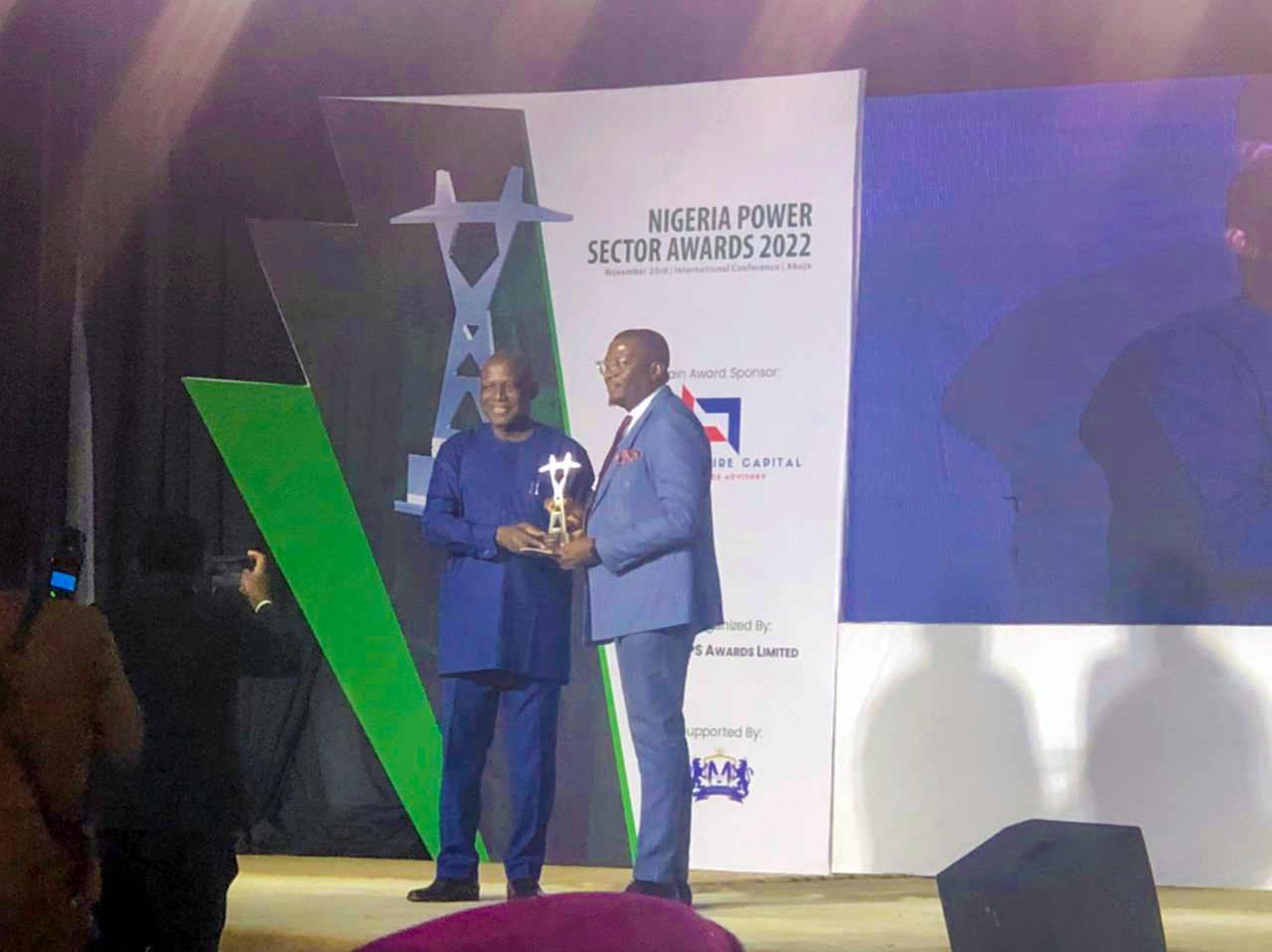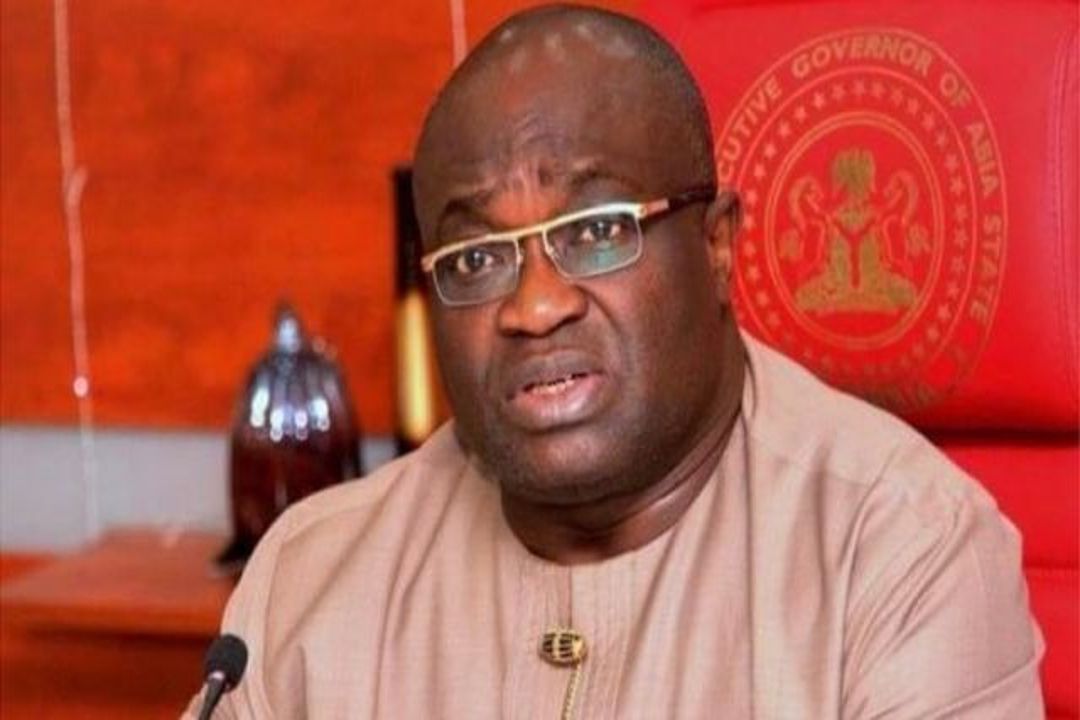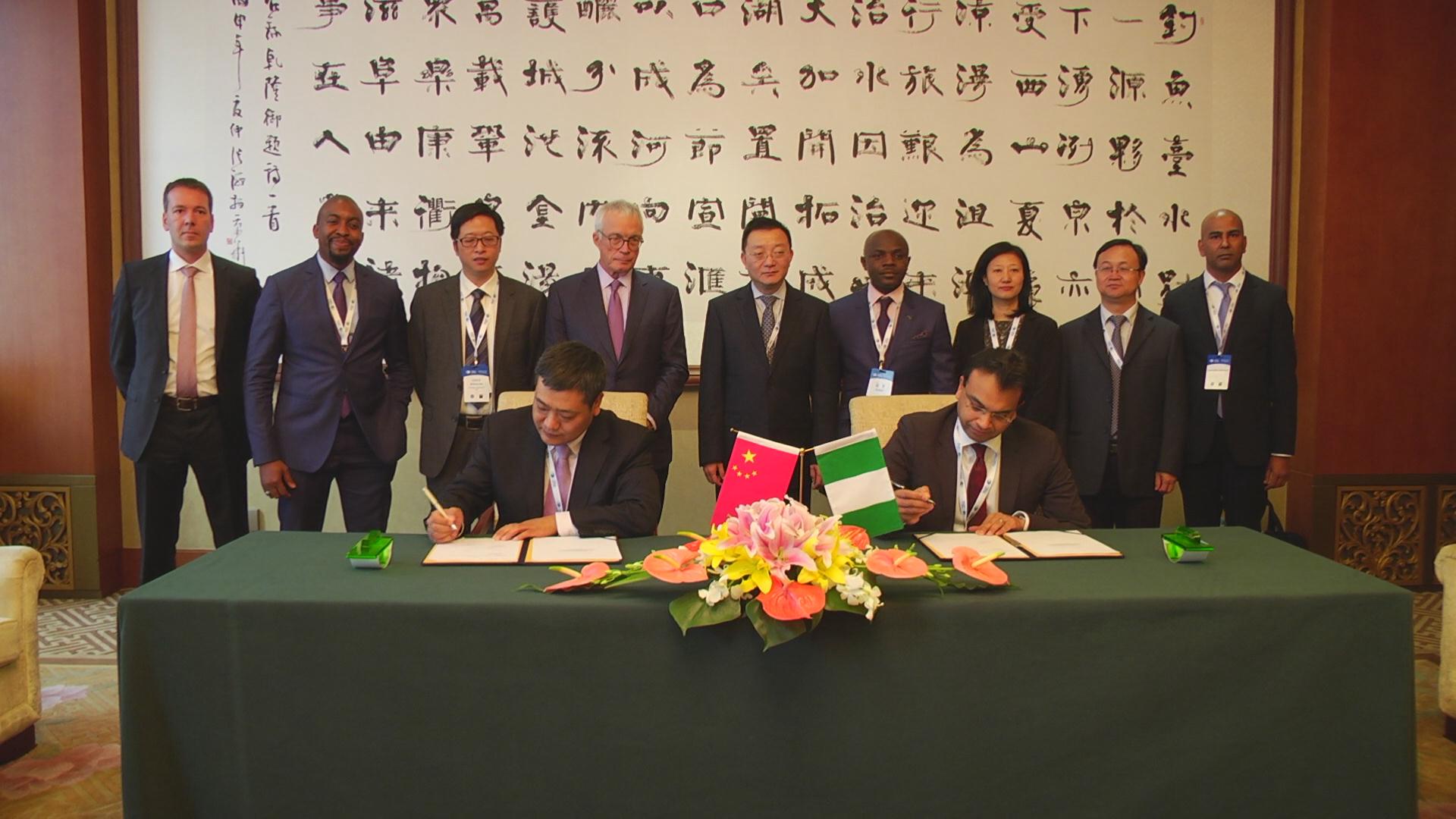PROFESSOR NNAJI ADVISES ELECTRICITY FIRMS TO UTILIZE MOUS WITH INTERNATIONAL INVESTORS
The immediate past Minister of Power, Professor Bart Nnaji, has called on indigenous and foreign electricity firms in the country to utilize immense opportunities provided by a series of Memoranda of Understanding (MoUs) signed by the Nigerian government and international investors in the last one year to accelerate the development of the power sector.
The former minister made the call this morning at a ceremony at Transcorp Hilton Hotel in Abuja where Geometric Power Ltd signed a Joint Development Agreement (JDA) with General Electric Power of the United States, the world’s largest manufacturer of electric equipment.
The agreement is for the establishment of a 450Megawatt power facility in Aba, Abia, where Geometric Power, founded by the former minister to develop model power projects in Nigeria, is already completing a 140MW integrated power system.
Professor Nnaji named the MoUs from which international and indigenous firms could tap as the one signed between the Nigerian government and GE for the latter to participate in the building of brand new plants to generate 10,000MW and the agreement with the United States Export-Import (EXIM) Bank to provide $1.5billion credit facility to firms using American goods and services.
Nigeria has also signed MoUs with Siemens of Germany and Daewoo of South Korea to help establish power plants to generate 10,000MW each.
“By entering into a development partnership with GE”, noted the erstwhile minister who is also a globally recognized authority in engineering, “we have taken a concrete step to give a practical expression to the MoUs which international investors signed because of their growing confidence in the Nigerian economy, especially the ongoing power sector reform which President Goodluck Jonathan is pursuing religiously in the interest of all the Nigerian people”.
Nnaji disclosed that the 450MW plant to be built with GE would cost $500m.
“The plant will be ready in not more than three years”, he said, explaining the difference in GE’s roles in the establishment of the 140MW Aba Power project which will be commissioned in March and the new one.
“GE supplied us the turbine and we chose GE because it is the best in the world”, he observed, “but this time GE will be deeply involved in the funding, the technologies, and deployment of human capital as well as ownership.
“This is the kind of Foreign Direct Investment (FDI) which Nigeria needs, and this is why I want other players in the fast growing electricity business in Nigeria to start to take advantage of the tremendous investment opportunities unleashed by both the power sector reform and the MoUs to work for the rapid growth of our national economy by helping the sector to leapfrog; electricity is central to our national development”.
Professor Nnaji cautioned Nigerians who invest abroad rather in their country.
“Capital flight does no one any good”, stating, “return on investment in Nigeria is, frankly speaking, much higher than in most countries of the world.
“It does seem that many of our people do not seem to fully appreciate yet the great opportunities which perceptive, far-sighted and careful international investors have now identified in Nigeria.
”It speaks volumes that GE, a Fortune 500 company which was in 2011 ranked the sixth largest company in the United States by gross revenue and is a big brand in energy, technology infrastructure, capital finance, consumer and industrial products, is now taking a radical interest in our country.”
Geometric Power, GE’s development partner, became the first indigenous privately-owned company in Nigeria to build a power station when its 22 Emergency power plant was in 2001 commissioned by the then Vice President Atiku Abubakar.
It supplied power without interruption for almost three years to the corporate headquarters of the Nigerian National Petroleum Corporation (NNPC), International Conference Centre and State House.
When its Aba facility starts commercial operations in March, its excess power will be sent to the national grid.
“To this end”, disclosed Nnaji, “we have long commenced discussions with the Bulk Electricity Trading Company”.



8 Comments
escape room · 02/07/2024 at 8:36 AM
hey there and thank you for your information – I have certainly picked up anything
new from right here. I did however expertise a few technical points using
this website, as I experienced to reload the site many times previous to I could get
it to load properly. I had been wondering if your web host is OK?
Not that I’m complaining, but sluggish loading instances times will very frequently affect your placement in google and can damage your quality score
if advertising and marketing with Adwords. Anyway I am adding this RSS to
my email and could look out for much more of your respective fascinating content.
Ensure that you update this again soon.. Lista escape roomów
Shelia-S · 06/07/2024 at 9:09 PM
Very good information can be found on weblog.!
abrir uma conta na binance · 18/07/2024 at 11:57 AM
Thank you for your sharing. I am worried that I lack creative ideas. It is your article that makes me full of hope. Thank you. But, I have a question, can you help me?
Inscrivez-vous pour obtenir 100 USDT · 21/07/2024 at 10:13 AM
I don’t think the title of your article matches the content lol. Just kidding, mainly because I had some doubts after reading the article.
Registrēties · 25/07/2024 at 11:32 PM
Your article helped me a lot, is there any more related content? Thanks!
^Inregistrare Binance · 29/07/2024 at 4:46 PM
Thanks for sharing. I read many of your blog posts, cool, your blog is very good.
Inscription Binance · 06/08/2024 at 11:58 AM
Thank you for your sharing. I am worried that I lack creative ideas. It is your article that makes me full of hope. Thank you. But, I have a question, can you help me?
binance · 16/08/2024 at 7:27 AM
I don’t think the title of your article matches the content lol. Just kidding, mainly because I had some doubts after reading the article.